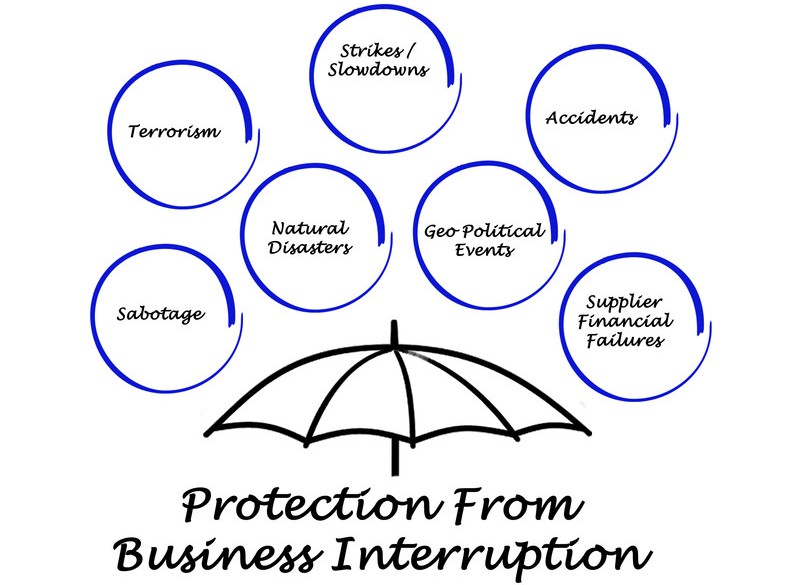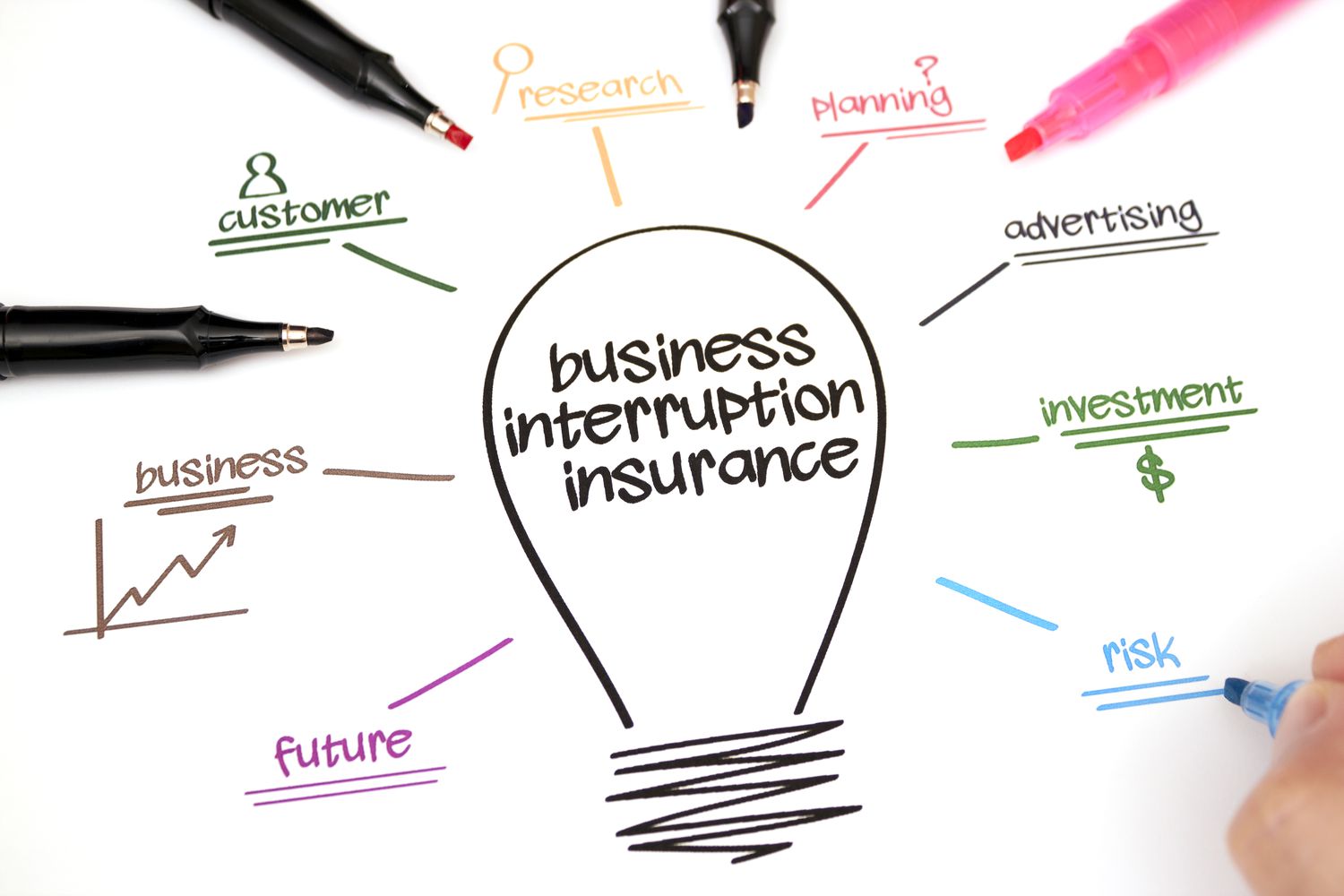Business Interruption Insurance: A Vital Safety Net for Your Business
As a business owner, you’re always preparing for the unexpected. However, no matter how carefully you plan, disasters such as fires, floods, pandemics, or natural catastrophes can strike at any time, causing significant disruptions to your operations. During such times, business interruption insurance can be a lifeline, ensuring that your business remains financially afloat while you focus on recovery.
In this article, we will explore what business interruption insurance is, why it’s essential, how it works, and how to determine if your business needs it. We will also answer some frequently asked questions to help you make an informed decision.

What is Business Interruption Insurance?
Business interruption insurance, also known as business income insurance, is designed to protect businesses against lost income due to disruptions in their operations. Whether it’s caused by a natural disaster, fire, or other covered event, this insurance helps a business cover its expenses during periods when it cannot operate as usual.
While traditional property insurance covers physical damage to buildings or assets, business interruption insurance goes a step further by covering the income your business loses as a result of this damage. This could include lost profits, ongoing expenses (such as rent and utilities), and even payroll for employees.
In essence, business interruption insurance provides a financial cushion when unforeseen events bring operations to a halt. Without this coverage, a temporary closure or disruption could mean devastating financial losses for your business.
Why Is Business Interruption Insurance Important?
1. Protecting Revenue Streams
The most direct benefit of business interruption insurance is the protection it provides against lost income. If your business faces a shutdown due to a covered event, the policy will help you recover lost revenue while you focus on rebuilding.
“A business interruption can be catastrophic for a small business without the right insurance. With coverage, you can continue paying your bills and employees, ensuring that you don’t face financial ruin.” – Insurance Experts
2. Covering Operational Expenses
Even if your business is temporarily closed or unable to operate at full capacity, there are still fixed costs that must be paid—rent, utilities, employee salaries, and loan payments. Business interruption insurance ensures that these costs are covered, so your business can continue to meet its obligations while you’re unable to generate revenue.
3. Helping with Recovery
When a disaster occurs, your focus will be on getting back on track. Business interruption insurance provides the financial stability needed to help your business recover quickly. It ensures you have the funds to repair, rebuild, or replace damaged equipment, machinery, and inventory, as well as resume normal operations.
4. Peace of Mind
Running a business is stressful enough without the worry of potential disruptions. Business interruption insurance gives you peace of mind knowing that your business will be supported during difficult times, allowing you to focus on what matters—your recovery and long-term success.

What Does Business Interruption Insurance Cover?
Business interruption insurance typically covers several aspects of a business’s operations during an interruption. Here’s what is commonly included:
1. Lost Revenue
This is the most important coverage under a business interruption insurance policy. If your business can’t generate revenue due to a covered event, the policy will replace lost income, helping you maintain financial stability during downtime.
2. Fixed Operating Expenses
Even if you’re not operating, certain expenses continue to accrue. These can include:
– Rent or mortgage payments for your business location
– Utility bills such as electricity, water, and gas
– Employee wages and benefits
– Loan payments for business-related debts
3. Temporary Relocation Costs
If your business needs to relocate temporarily, business interruption insurance may cover the costs of moving to another location, such as the cost of renting temporary office space or equipment.
4. Extra Expenses
Sometimes, your business may incur additional expenses due to the interruption, such as costs associated with speeding up repairs or renting alternative equipment. This coverage helps to ease the financial strain caused by such extra expenses.
5. Payroll Costs
For businesses that depend on employees, maintaining payroll is a critical expense. Business interruption insurance can cover employee salaries during an interruption, ensuring that you don’t lose your valuable workforce.

How Does Business Interruption Insurance Work?
Step 1: Event of Loss
A covered event occurs—such as a fire, flood, or other disaster—that causes damage to your property and prevents you from operating your business.
Step 2: Business Shutdown
As a result of the damage, your business must shut down or operate at a reduced capacity. This could mean that you can’t serve customers, produce goods, or keep regular operations running.
Step 3: Filing a Claim
You file a claim with your insurance provider. The insurer will review the claim and determine the extent of the loss, including the revenue lost, expenses incurred, and duration of the interruption.
Step 4: Payment
Once your claim is approved, the insurance provider will begin paying for the covered losses, based on the terms of your policy. This could include replacement of lost income, payment for fixed expenses, and covering additional costs incurred during the interruption.
Step 5: Recovery
Your business resumes normal operations, and the policy helps cover the financial gap until things are back to normal.
Who Needs Business Interruption Insurance?
Any business that relies on physical premises, inventory, or equipment to operate should strongly consider purchasing business interruption insurance. While larger companies often have the financial resources to weather temporary setbacks, smaller businesses are more vulnerable to interruptions.
Industries That Should Consider Business Interruption Insurance:
- Retail: Retailers may face interruptions from events such as fires or vandalism, which could halt operations and lead to significant revenue loss.
- Manufacturing: Factories and manufacturers are heavily reliant on machinery and equipment. A breakdown or damage could mean months of lost production and revenue.
- Hospitality: Hotels, restaurants, and other hospitality businesses often face risks such as fires, natural disasters, or even pandemics. These events can cause temporary closures, leading to revenue loss.
- Healthcare: Medical offices and healthcare providers must consider business interruption insurance in the event of equipment failure or damage, as downtime could affect patient care.
If your business relies on a location or physical infrastructure to operate, business interruption insurance is critical for protecting your operations.

Factors to Consider When Purchasing Business Interruption Insurance
When shopping for business interruption insurance, consider the following factors to ensure you have the right coverage:
1. Coverage Limits
Ensure that the coverage limit matches your business’s revenue and operating expenses. The policy should be able to cover both lost income and ongoing costs for a sufficient period.
2. Waiting Period
Most policies include a waiting period before coverage kicks in. Typically, the waiting period ranges from 24 hours to several days. Be sure to review the policy’s waiting period to understand when the coverage will start.
3. Duration of Coverage
Consider how long you will need the coverage to last. Most policies cover business interruptions for a period of 12 to 24 months, but this can vary depending on the policy. Make sure the duration is enough to recover from the loss.
4. Exclusions
As with any insurance policy, there will be exclusions. Review the terms and conditions carefully to ensure that you understand what is and isn’t covered. For example, pandemics or war-related damage may not be included in some policies.
FAQs About Business Interruption Insurance
1. Is Business Interruption Insurance the Same as Property Insurance?
No, business interruption insurance is a separate policy from property insurance. Property insurance covers the physical damage to your property, while business interruption insurance covers the financial losses incurred during the interruption.
2. Does Business Interruption Insurance Cover Losses Due to a Pandemic?
Many business interruption insurance policies exclude coverage for pandemics or diseases unless they specifically include it. In recent years, businesses have faced challenges related to COVID-19-related interruptions, and many insurers have excluded such coverage.
3. Can I Add Business Interruption Coverage to My Existing Policy?
Yes, many businesses can add business interruption insurance as an endorsement to their existing property insurance policy. Speak to your insurance agent to learn about options available for your business.
4. How Much Does Business Interruption Insurance Cost?
The cost varies depending on the size of your business, the industry you operate in, and the coverage limits. On average, small businesses can expect to pay between $500 and $1,500 annually for business interruption insurance.
Conclusion
Business interruption insurance is an essential coverage that every business owner should consider. It offers protection against the unforeseen events that could otherwise devastate your business financially. By ensuring that you have this coverage, you can continue to pay expenses and keep your operations running smoothly during a crisis. While it’s impossible to predict when a disaster will strike, being prepared with the right insurance can help your
business weather the storm.

